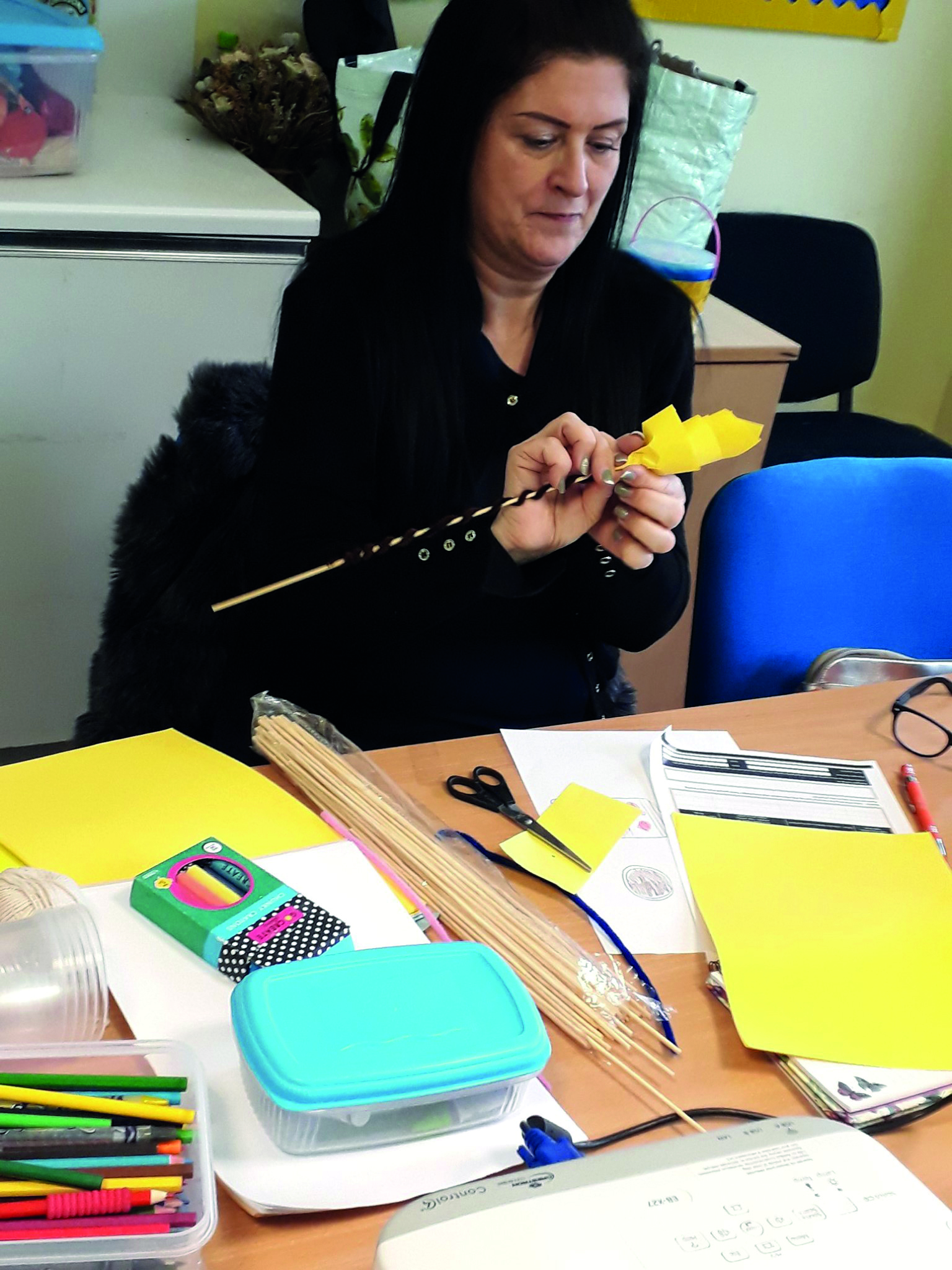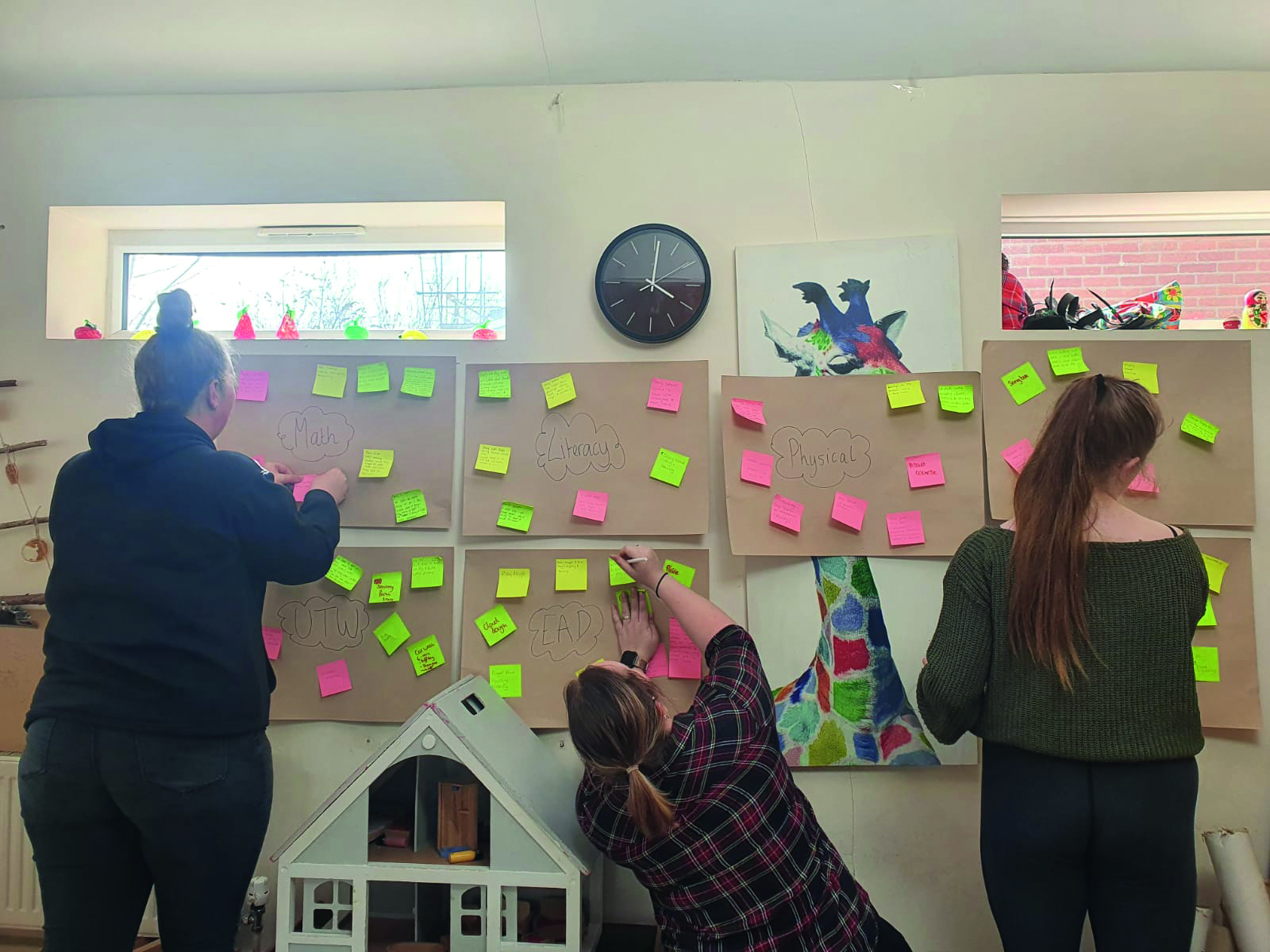
Planning CPD is a skill which takes time and effort – there is a consensus that it goes beyond just designing and delivering programmes. According to some of the country's leading nursery groups, it should also be tailored to encompass different learning styles, involve real-world information, be memorable, and be rigorously evaluated to gauge what difference it is making to practice. It can also be tailored to reflect a distinct ethos and brand identity.
The supplementary guidance to Development Mattersstates that a good CPD programme should be ‘planned carefully, delivered well, and regularly evaluated. It needs to be seen as a year-round activity, and not a one-off event.’
Case study: London Early Years Foundation (LEYF)
LEYF's in-house training academy offers more than 34 CPD programmes for nursery staff, and won the Team Development Award at the Nursery World Awards 2020. As a social enterprise, LEYF aims to ensure that a focus on bridging the attainment gap runs throughout the training offer.
Pedagogy manager Mandy Cutler explains, ‘There is a big gap in vocabulary between children from advantaged and disadvantaged homes, so all of our training emphasises language. It also emphasises pedagogical leadership, as we know children from disadvantaged backgrounds get the most benefit when a nursery is run by a strong pedagogical leader with a deep understanding of how children learn.’
The team aims to reflect the current context; for example, Ofsted's findings on areas in which children have fallen behind due to the pandemic.
‘Simply having a suite of training is not responsive, because people's needs change,’ says Ms Cutler. ‘Children change, teachers change, and so does the world and context they are working in. We need to make sure we are not standing still. Our training offer is dynamic and responds to research and findings from studies and contemporary issues.’
The team visits each nursery at least once a term to ensure its CPD offer is meeting their requirements.
‘One of the good things about our team is we’re not just trainers,’ Ms Cutler says. ‘We work with teachers on the floor and talk to them about training, what they have learned and what impact it has had on children. They also give us a termly evaluation of their practice and provision, which helps us notice commonalities in training needs. That allows us to create much more meaningful training than just deciding something is flavour of the month and running a session on it.’
Regular Q&A sessions on themes such as planning, language development, sustainability, or working with children with SEND, are open to everyone. These help the L&D team gauge trends and keep abreast of needs in order to tweak courses or develop new ones.
In this way, the team hopes to ensure the group's offer is consistent.
‘A lot of research suggests effective CPD is sustained,’ explains Ms Cutler. ‘For example, six out of ten of our current degree cohort have been promoted since they started the degree. That is a sign of sustained input really developing their skills, knowledge and confidence.’
A mixture of topics is a priority for LEYF's CPD offer, as Ms Cutler believes upskilling can be overlooked in favour of compliance.
‘Some providers make the mistake of focusing CPD on topics like safeguarding or first-aid, while CPD that seeks to upskill teachers and their knowledge of pedagogy is put on the backburner,’ she says. ‘In fact, there is a lot of research on the correlation between well-educated, highly skilled teachers and positive impacts on children's outcomes.’
Training is tailored to individual learning styles, with an emphasis on being active and experiential. ‘Early years practitioners are generally not used to sitting down for long periods of time,’ Ms Cutler explains. ‘It can be difficult and quite a change of pace to ask them to sit and be talked at. That's not how they learn.’
Sessions such as woodwork and parachute games get practitioners involved in activities. ‘We believe sessions should be hands-on, lively, and something teachers can take directly back to the nursery,’ Ms Cutler adds.
Case study: Busy Bees

Busy Bees’ Ofsted Outstanding-rated Education and Training department offers apprenticeships up to Level 5 qualifications, as well as a wide range of short courses.
The nursery group, the UK's largest, has its own team of full-time assessors known as development coaches, all of whom have worked in the early years, often within the Busy Bees group. They create and deliver all content except first-aid courses, which are delivered externally.
Ann Poolton, head of CPD, explains, ‘We try to draw on the strengths of as many people as possible within the group to ensure we keep abreast of what is happening across the sector. If we are running a course on safety, we involve the safety team, if it's on childcare, the childcare team.’
The team also works closely with members of senior management, who are often well positioned to foresee changes to national policy due to the group's size.
‘We try to get the heads-up if something is changing with Ofsted or the EYFS,’ Ms Poolton adds. ‘For example, as part of the focus group on the new EYFS, we could keep ahead when writing course content related to the changes.’
The group has now expanded its Virtual Learning Academy to offer all courses, apart from first-aid, online, with subtitles for staff with English as an additional language. The team also aims for regular evaluation, as learners must provide feedback before they can complete a course and get their certificate.
‘We want that instant reaction, and review responses regularly,’ Ms Poolton says. ‘There is nothing we offer that can’t be adapted to a screen-to-screen version. We haven’t lost anything; in fact we are adding all the time, most recently a children's mental health course.
‘Of course, people learn differently, and while lots want to know they can accommodate their learning around other commitments, some prefer a hands-on opportunity to network outside the nursery. We will be striving to get a good balance in a post-Covid world; not losing the benefits of online learning but recognising there is still a need for face-to-face.’
Case study: Paint Pots

Owner David Wright says that at Paint Pots, CPD stands for continuous personal development.
‘There is certainly a professional element to it, but we are clear that you only have one life and you want to make the most of it,’ he says. ‘Training is not exclusively sitting in a classroom or doing an online course. It's mentoring, watching others, getting encouragement and inspiration. To paraphrase Robert Frost, we are not teachers but awakeners, and we want to awaken things in our people that will excite them in their career and make them feel fulfilled.’
As a result, the group runs regular supervisions and appraisal sessions to allow individual feedback to guide bespoke routes through its CPD programme. Time is also set aside following training to evaluate its use to each learner.
Mr Wright explains, ‘It's important to have a follow-up to ask what difference the training has made to practice. I call it the “so what?” question. We ask staff to identify one or two things they intend to do differently, and six weeks later we ask them how they have done that and what the impact has been.
‘CPD for its own sake is pointless. It has to connect, resonate and have an effect.’
The group uses training providers for apprenticeships, Levels 2, 3 and 5 and degree courses, while the owners run regular sessions on a variety of topics. Two full-company training days a year are led by guest speakers, while each team attends a separate yearly day at which fellow staff members provide training in specialist areas, such as additional needs or interactions with children.
Paint Pots uses Flick Learning to offer online courses including health and safety and sessions on the EYFS, and the video-clip library from Siren Films for elements of practice.
‘Siren are brilliant resources as they provide real-life clips alongside provocations and questions,’ says Mr Wright. ‘You can watch together, then have a good discussion about what happened and how it might apply to children. I like things that are grounded in real-life practice. Training is only effective in as much as it makes a difference.’
As a member of the World Forum Foundation, a non-profit organisation promoting quality early education, Mr Wright brings lessons learned on his global travels back to share with staff in face-to-face sessions or via regularly released blogs, webinars and video clips.
In terms of course content, the group is constantly on the lookout for new ideas, he says.
‘We’re magpies, we’ll steal anything from anybody. I don't have an issue with people who ground what they do in a particular philosophy or pedagogy, but I think even in a different cultural context, children are children, and their attachment, development, support and growth needs are the same. It's vital to know what is happening in the world around us, in families and local communities, and respond to that to continue developing.’









